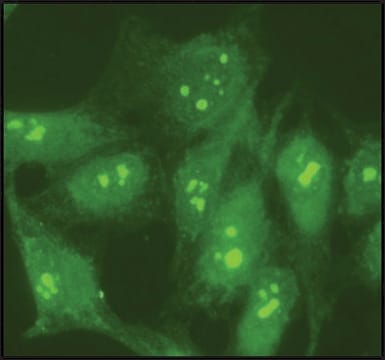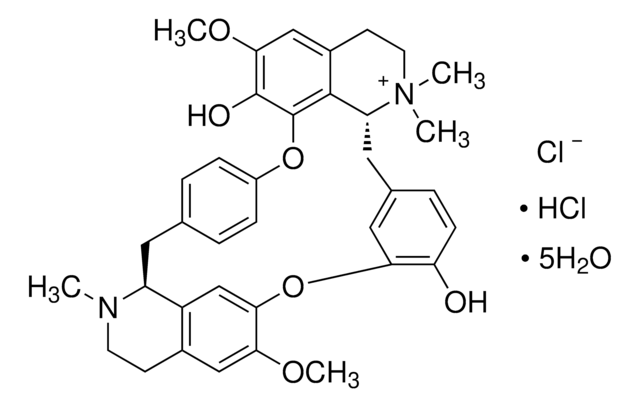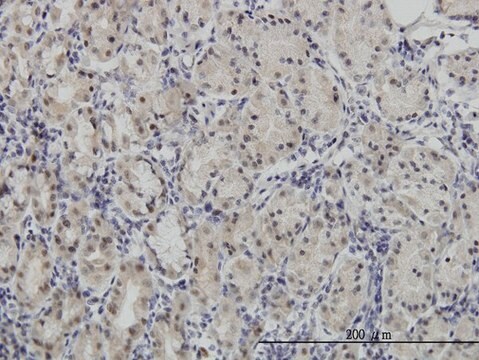05-565
Anti-Nucleolin Antibody, clone 3G4B2
culture supernatant, clone 3G4B2, Upstate®
About This Item
Productos recomendados
biological source
mouse
Quality Level
antibody form
culture supernatant
antibody product type
primary antibodies
clone
3G4B2, monoclonal
species reactivity
human, canine, monkey
manufacturer/tradename
Upstate®
technique(s)
immunocytochemistry: suitable
immunoprecipitation (IP): suitable
western blot: suitable
isotype
IgG
NCBI accession no.
UniProt accession no.
shipped in
dry ice
target post-translational modification
unmodified
Gene Information
human ... NCL(4691)
General description
nucleo-cytoplasmic transport. Nucleolin also exhibits autodegradation, DNA and RNA helicase activities, and DNA-dependent ATPase activity. Nucleolin activities may be regulated by proteolysis, methylation, ADPribosylation, and phosphorylation by several kinases, including casein kinase II (CK2), p34cdc2, and protein kinase C-ζ.
Specificity
Immunogen
Application
Quality
Target description
Linkage
Physical form
Analysis Note
Positive Antigen Control: Catalog #12-309, Hela cell nuclear extract. Add an equal volume of Laemmli reducing sample buffer to 10 μL of extract and boil for 5 minutes to reduce the preparation. Load 20 μg of reduced extract per lane for minigels.
Legal Information
¿No encuentra el producto adecuado?
Pruebe nuestro Herramienta de selección de productos.
Optional
Storage Class
10 - Combustible liquids
wgk_germany
WGK 1
Certificados de análisis (COA)
Busque Certificados de análisis (COA) introduciendo el número de lote del producto. Los números de lote se encuentran en la etiqueta del producto después de las palabras «Lot» o «Batch»
¿Ya tiene este producto?
Encuentre la documentación para los productos que ha comprado recientemente en la Biblioteca de documentos.
Nuestro equipo de científicos tiene experiencia en todas las áreas de investigación: Ciencias de la vida, Ciencia de los materiales, Síntesis química, Cromatografía, Analítica y muchas otras.
Póngase en contacto con el Servicio técnico






